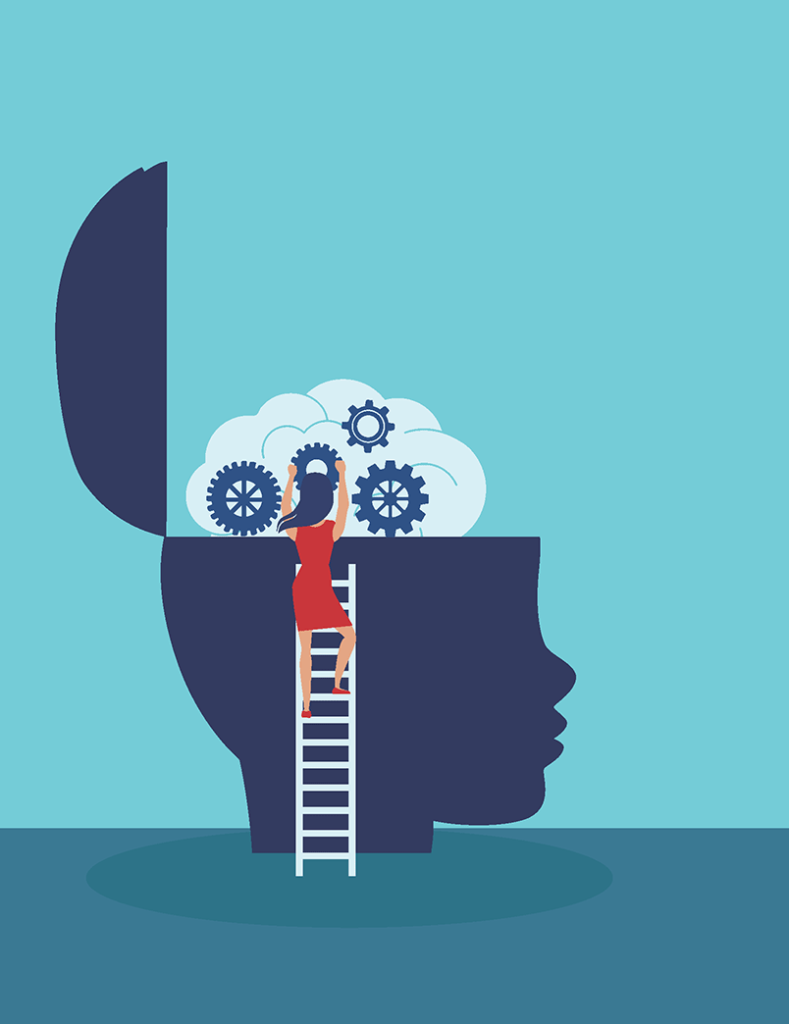“If This Is Supposed to Be Easy, Why Is It So Hard?”
How to Deal with Situational Variability in Adults with ADHD YOU HAVE BEEN SUCCESSFUL at your job for years, but struggle with it now because you are working from home. You can plan and execute all the elements of a large project, but have difficulty planning a trip. Your child can design and code the…
Read MoreWhat a Difference a Year Makes: The 2021 Conference on ADHD
This time last year wE ANNOUNCeD that our Annual International Conference on ADHD for 2020 was going virtual. And go virtual it did! We scrambled around learning new skills and developing new ways of doing a conference. While most of us lament the not getting together, it turns out that the feedback from the 2020 conference…
Read MoreAngels & Demons
I have been thinking a lot this past year about the prevalence of shame in our society. In her book Daring Greatly, self-proclaimed “shame researcher” Brené Brown defines this emotion as “the intensely painful feeling or experience of believing that we are flawed and therefore unworthy of love and belonging.” She goes on to say…
Read MoreThe Parent As If They Are Younger Myth
If Johnny is six years old, would it seem odd to you to treat him like a three-year-old with regard to bedtime, getting him dressed, and enforcing screen limits? How about facilitating his playdates the same way you would for a three-year-old? How do you think Johnny and his friends might perceive this? There is…
Read MoreThe Myth of ADHD Overdiagnosis
ADHD is not overdiagnosed, but it may be often misdiagnosed. Sometimes people think ADHD is overdiagnosed because diagnoses have increased over time. It could be true that some diagnosed people do not really have ADHD. There are college students who fake ADHD to get medications that help them study faster. There are people experiencing depression,…
Read More
The Gender Myths
(Or “Only Boys Have ADHD”)
Many people hold that long-standing and widespread belief that only boys have ADHD—but it is a myth. For almost a century, the majority of clinic referrals were for young hyperactive boys who were impulsive and unmanageable. Researchers used the data describing the behaviors of those boys as the basis for the early diagnostic criteria. Since…
Read MoreCoping with and Recovering from the Pandemic: Key School Issues for Kids with ADHD
While it is now well recognized that kids with ADHD who struggle in school may be entitled to receive services under an IEP or a Section 504 plan, many students with ADHD continued to struggle prior to the pandemic, either despite these services or protections or because schools were still not willing or sufficiently trained…
Read MoreADHD and Healthy Lifestyle Behavior
Are children with ADHD more likely to have difficulty following healthy lifestyle behaviors compared to children who don’t have ADHD? This research update will focus on two studies that considered different aspects of that question. The first study examined a number of different lifestyle factors, such as water intake, consumption of sweetened beverages, multivitamin and…
Read MoreSmall Talk Is Painful
Making small talk is a critical life skill and the foundation for all friendships. A conversation can increase your level of intimacy with someone. Small talk allows you to see if you have mutual interests and to get a sense of who they are and what they like. It can introduce you to a new…
Read MoreI-PCIT: When Help Is Needed Now
For parents of preschool-age children prone to behavior that is very hard to manage, many experts currently recommend Parent-Child Interaction Therapy, or PCIT, as an effective treatment intervention. Among them is Paulo Graziano, PhD, a PCIT practitioner who is an associate professor at Florida International University. He notes that PCIT sessions generally occur weekly, however,…
Read MoreQuiet Your Inner Critic
Mindfulness and Self-Compassion for Teens with ADHD I’m going to share one of the best pieces of advice I ever got. My junior year English teacher endlessly heard me complain about school and how useless I felt it was. Without even knowing about my ADHD, she said, “You are the kind of person who hates…
Read MoreDisclose Your ADHD? What to Consider First
Revisiting “To Tell or Not to Tell” Clients and audience members often ask me whether to tell their family, friends, coworkers, or bosses that they have ADHD. In social situations there sometimes are no right or wrong answers; so much depends on the circumstances, the openness of the person who has ADHD, and trustworthiness of…
Read More











